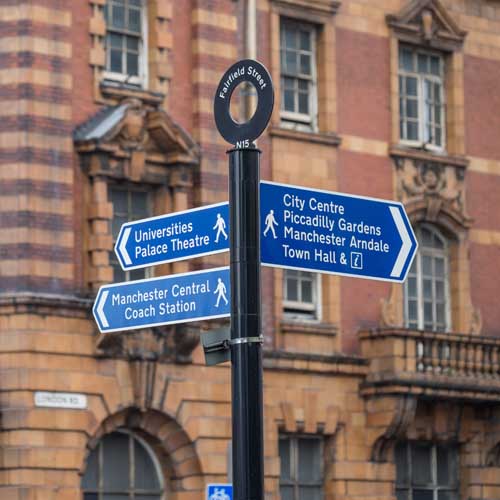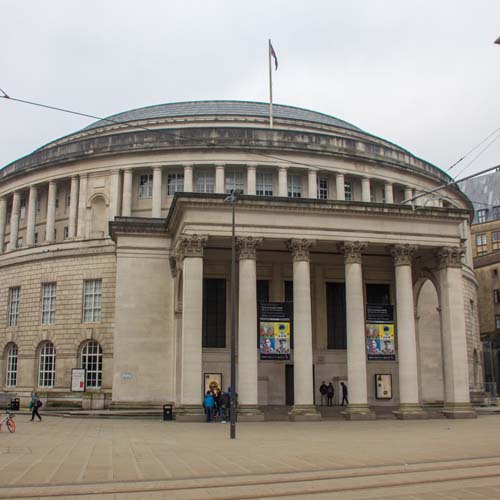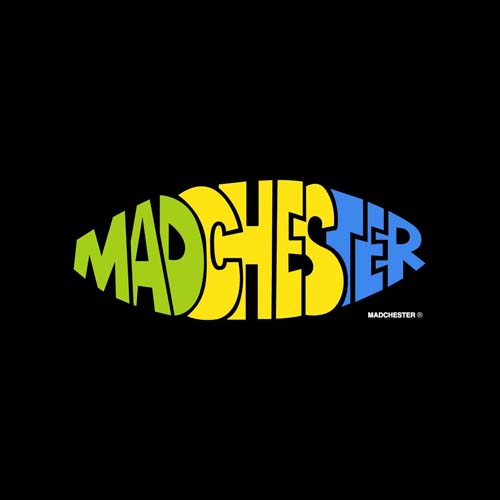Manchester has a rich history of music, particularly in the electronic dance music genre. The city has produced some of the most influential and pioneering DJs in the world, who have helped shape the global music scene.
The importance of Manchester’s DJs lies in their ability to create a unique sound that reflects the city’s culture and spirit. These DJs have been instrumental in developing the city’s nightlife and music scene, attracting people from all over the world to experience the city’s vibrant and diverse music culture.
Moreover, Manchester’s DJs have also played a significant role in introducing new music genres and styles to the city. They have helped to break down cultural barriers and unite people from different backgrounds through the power of music.
Many of these DJs have also become cultural icons in their own right, inspiring future generations of musicians and artists to follow in their footsteps. Their influence has been felt not only in Manchester but also in music scenes across the world.
In addition to their musical contributions, some of Manchester’s DJs have also been actively involved in promoting social and political causes. They have used their platforms to raise awareness and funds for issues such as homelessness, poverty, and mental health.
Overall, Manchester’s DJs have made a significant impact on the city’s cultural and social fabric. Their contributions have helped to shape the city’s identity and make it a hub for music and creativity. Their legacy will continue to inspire and influence future generations of musicians and artists.
Here are some of the most notable DJs from or with links to Manchester:
Sasha
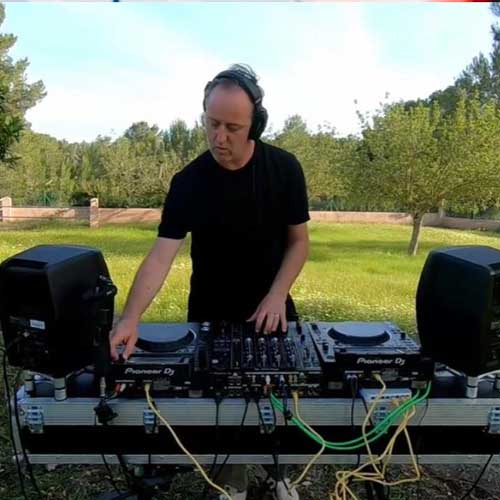
DJ Sasha is a world-renowned DJ and record producer, who has been a pioneer of electronic dance music for over three decades. Born Alexander Coe in Bangor, Wales in 1969, he became interested in electronic music as a teenager and began DJing in his early 20s.
In the late 1980s and early 1990s, Sasha became one of the leading DJs in the emerging dance music scene in Manchester. Along with his long-time collaborator John Digweed, he was a resident at the famous club, The Haçienda, which was owned by the legendary Manchester band, New Order.
Sasha’s style of DJing was innovative and groundbreaking. He was known for his use of mixing techniques such as beatmatching and harmonic mixing, which allowed him to seamlessly blend tracks together in a way that had never been heard before. His sets were a unique fusion of house, techno, and trance, and he quickly gained a reputation as one of the most talented DJs in the world.
Sasha’s association with Manchester was a key part of his rise to fame. The city was at the forefront of the dance music scene in the UK in the late 1980s and early 1990s, and The Haçienda was one of the most important clubs in the country. Sasha’s residency at the club helped to establish him as a leading DJ, and he quickly gained a huge following.
In addition to his work at The Haçienda, Sasha also played at other clubs beyond Manchester, such as the legendary Shelleys in Stoke and at Clubs all over Lancashire.
He was a regular at the city’s famous “raves” and played at some of the biggest events of the time, such as the famous “Hacienda NYE 1992” party.
Sasha’s influence on the Manchester music scene was significant. He helped to shape the sound of dance music in the city and was a key figure in the development of the “progressive house” genre, which became popular in the early 1990s. His sets at The Haçienda and other clubs in the city were legendary, and he was instrumental in introducing many Manchester music fans to electronic dance music.
Despite his association with Manchester, Sasha’s career has taken him all over the world. He has played at some of the biggest clubs and festivals in the world, and has collaborated with some of the biggest names in dance music. He has released numerous albums and singles, and has been nominated for awards for his work as a DJ and producer.
Today, Sasha is still regarded as one of the most influential DJs in the world. His innovative style of DJing and his contribution to the development of electronic dance music have made him a legend in the industry. And while his association with Manchester may have been a long time ago, his influence on Manchester’s music scene is still felt today.
Mike Pickering
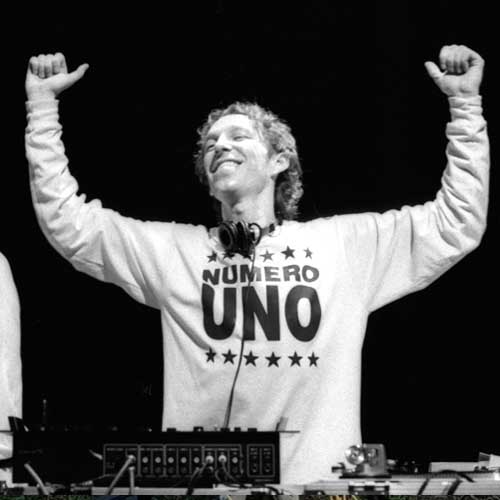
DJ Mike Pickering is a legendary figure in the Manchester music scene. Born in Blackburn in 1954, he first made a name for himself as a member of the seminal Manchester post-punk band, Quando Quango. But it was as a DJ that Pickering truly made his mark, becoming one of the most important figures in the development of the city’s dance music scene.
In the late 1980s, Pickering became a resident DJ at the iconic Manchester nightclub, The Haçienda. Along with fellow DJ Jon DaSilva, he played a key role in shaping the sound of the club and helping to establish it as one of the most important venues in the world of dance music.
Pickering’s association with The Haçienda was crucial to his success as a DJ. The club was owned by the band New Order, and its reputation as a hub for electronic music helped to attract a diverse and enthusiastic crowd. Pickering’s sets were a fusion of house, techno, and other genres, and his skills as a DJ were widely admired.
As well as his work at The Haçienda, Pickering was also involved in the organisation of some of Manchester’s most legendary club nights. He was a key figure in the development of the “Madchester” scene of the late 1980s and early 1990s, and was involved in organising some of the biggest events of the time.
Pickering’s influence on the Manchester music scene was significant. He helped to establish the city as a hub for electronic music, and his pioneering DJ sets helped to shape the sound of dance music in the UK and beyond. His work at The Haçienda and other clubs in the city was instrumental in bringing electronic music to a wider audience, and he was a key figure in the development of the acid house and rave scenes of the late 1980s and early 1990s.
In 1990 Mike, a keyboardist and programmer, formed M People with Heather Small on vocals. In 1994 they won the Brit Award for British Dance Act, the same year their album Elegant Slumming won the Mercury prize. M People released five studio albums in the 90’s which went on to sell over 11 million records. The group disbanded in the late 90’s but made a comeback in 2006.
After leaving The Haçienda in the early 1990s, Pickering continued to work as a DJ and music producer. He released a number of successful albums and singles, and continued to be a popular figure on the club scene. He was also involved in the organisation of the biennial Manchester International Festival, a major cultural event that has helped to put the city on the map as a hub for arts and culture.
Today, Pickering is regarded as one of the most important figures in the history of Manchester music. His contribution to the development of the city’s dance music scene was crucial, and his innovative DJ sets helped to establish Manchester as a global centre for electronic music. His influence on the city’s cultural scene is still felt today, and his legacy continues to inspire a new generation of DJs and music producers.
Greg Wilson
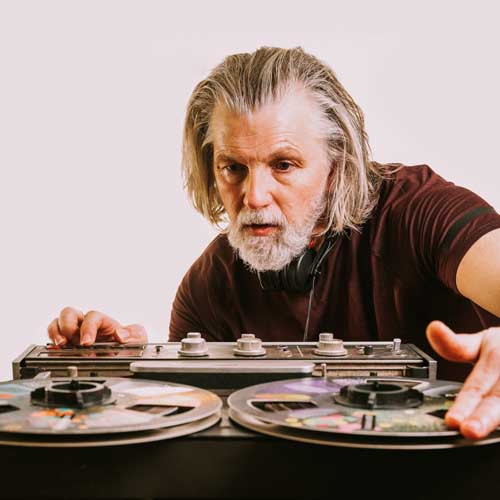
DJ Greg Wilson is a pioneering figure in the world of dance music, and a key player in the Manchester music scene. Born in Liverpool in 1960, Wilson began his career as a DJ in the 1970s, playing at clubs and parties across the UK.
In the early 1980s, Wilson moved to Manchester, where he quickly became a central figure in the city’s vibrant music scene. He played at some of the city’s most iconic clubs, including The Haçienda and Legend, commonly known as Legends, and was a regular at the city’s famous “raves.”
Wilson’s approach to DJing was innovative and forward-thinking. He was known for his use of cutting-edge technology, such as drum machines and samplers, which allowed him to create unique and experimental sets that pushed the boundaries of electronic music. He was also a key figure in the development of the “re-edit” genre, which involved remixing classic tracks to create new and exciting versions of old favourites.
In addition to his work as a DJ, Wilson was also a respected music producer. He released a number of successful singles and albums, and was known for his collaborations with other artists and musicians.
Wilson’s influence on the Manchester music scene was significant. His innovative approach to DJing and music production helped to establish the city as a hub for electronic music, and his contributions to the development of the “re-edit” genre were instrumental in shaping the sound of dance music in the UK and beyond.
Wilson’s legacy continues to inspire a new generation of DJs and music producers. He has been recognised as a major influence on the dance music scene, and his work has been celebrated in numerous articles, books, and documentaries.
Today, Wilson continues to be an important figure in the world of dance music and remains a highly respected DJ and music producer, continuing to perform at clubs and festivals around the world. His association with Manchester remains strong, and he is regarded as one of the key players in the city’s rich musical history.
Dave Haslam
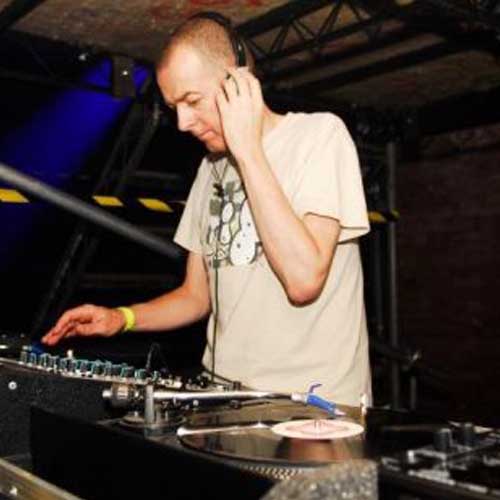
Dave Haslam is a renowned DJ, writer, and broadcaster from Moseley in Birmingham, England. He is best known for his association with Manchester’s music scene and his influential DJ sets at some of the city’s most iconic venues.
Haslam’s association with Manchester began in the mid 1980s, when he started promoting band nights as well as writing for the New Musical Express, NME, before DJing at clubs like The Haçienda and The Boardwalk. These clubs were at the forefront of Manchester’s burgeoning music scene, which was characterised by a mix of punk, post-punk, and dance music.
Haslam quickly became one of the most popular DJs in Manchester, known for his eclectic and unpredictable sets. He would mix together different genres and styles, creating a sound that was uniquely his own. Haslam’s DJ sets became legendary, drawing crowds of people who were eager to hear the latest and greatest music from Manchester and beyond.
One of the most significant moments in Haslam’s career came in 1986, when he was asked to become the resident DJ at The Haçienda. The Haçienda was a groundbreaking club that had been opened by the band New Order, and it quickly became one of the most important venues in the UK. Haslam’s residency at The Haçienda helped to cement his reputation as one of the best known DJ names in the country and helped to elevate the club’s profile even further.
Haslam’s association with Manchester’s music scene continued throughout the 1980s and 1990s. He played a key role in the Madchester scene of the late 1980s, which saw Manchester become a hub for dance and indie music. Haslam’s DJ sets were an important part of this scene, helping to introduce new sounds and styles to a wider audience.
In addition to his work as a DJ, Haslam has also been a prolific writer and broadcaster. He has written several books about Manchester’s music scene, including “Manchester, England” and “Life After Dark: A History of British Nightclubs & Music Venues.” Haslam has also worked as a presenter on BBC Radio Manchester, where he has interviewed some of the biggest names in music.
Haslam’s influence on Manchester’s music scene cannot be overstated. He played a key role in shaping the city’s sound and helping to establish Manchester as a centre of musical innovation and creativity. His DJ sets at The Haçienda and at ‘Yellow’, a club night at The Boardwalk, helped to define the Madchester scene, and his work as a writer and broadcaster has helped to preserve the legacy of Manchester’s music scene for future generations.
Today, Haslam remains a well known figure in Manchester’s music scene. He now rarely DJs at clubs and events across the city, but he is still a passionate advocate for Manchester’s music culture. Haslam’s association with Manchester goes back a long way and his impact on the city’s music scene will be felt for many years to come.
Mr. Scruff
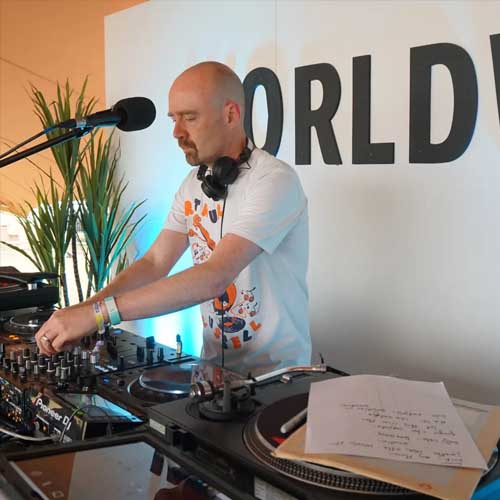
Mr Scruff, a DJ and producer born in Macclesfield, just outside Manchester is known for his eclectic and genre-defying sets. He is widely regarded as one of the most influential DJs to come out of Manchester’s music scene, and his association with the city dates back to the early 1990s.
Born in 1972, Mr Scruff (real name Andy Carthy) grew up in Stockport, a suburb of Greater Manchester. He began his DJ career in the early 1990s, playing at local clubs and events in and around Manchester. His style was heavily influenced by the diverse music scene in Manchester at the time, which included everything from acid house and techno to hip-hop and soul.
Mr Scruff’s breakthrough came in 1999, with the release of his eponymous debut album, “Mr Scruff.” The album was a critical and commercial success, showcasing his unique blend of different musical genres and styles. Tracks like “Get a Move On” and “Honeydew” became instant classics, with their jazzy beats and soulful melodies.
Mr Scruff is not just associated with being a DJ but also for his love of Tea. When he DJ’d at the Music Box on Oxford Street, Manchester, there was a Tea stall set up as he played his set with all the money raised going to charity. This theme continued when he played at festivals with a tent being erected specifically for the purpose of having a brew on the go. Another of the things that sets Mr Scruff apart from other DJs is his dedication to vinyl. He is known for his extensive collection of records, which he uses to create his signature sound. He is also known for his marathon DJ sets, which can last for up to eight hours.
Mr Scruff’s association with Manchester is an important one, and he is often referred to as one of the city’s musical ambassadors. He has played at some of Manchester’s most iconic venues, including, Band on the Wall, and The Ritz, as well as performing at The Warehouse Project. He is also a regular fixture at the city’s annual Parklife Festival, where he has played to thousands of fans over the years.
In addition to his work as a DJ and producer, Mr Scruff is also known for his artwork. He creates all of his own album covers and has designed posters and flyers for many of his shows. His artwork is often whimsical and playful, reflecting his sense of humour and his love of cartoons and comics.
Mr Scruff continues to influence Manchester’s music scene. He has been a key figure in the city’s dance and electronic music scene for more than two decades, and his dedication to vinyl and his eclectic sets have inspired countless DJs and producers around the world. He has helped to put Manchester on the map as a centre of musical innovation and creativity, and his association with the city will always be a strong one.
Conclusion
These DJs are just a few examples of the many talented and influential figures who have emerged from the Manchester music scene, which continues to be a hub of creativity and innovation in the world of electronic and dance music.
Tell us, who is your favourite Manchester DJ and why?

